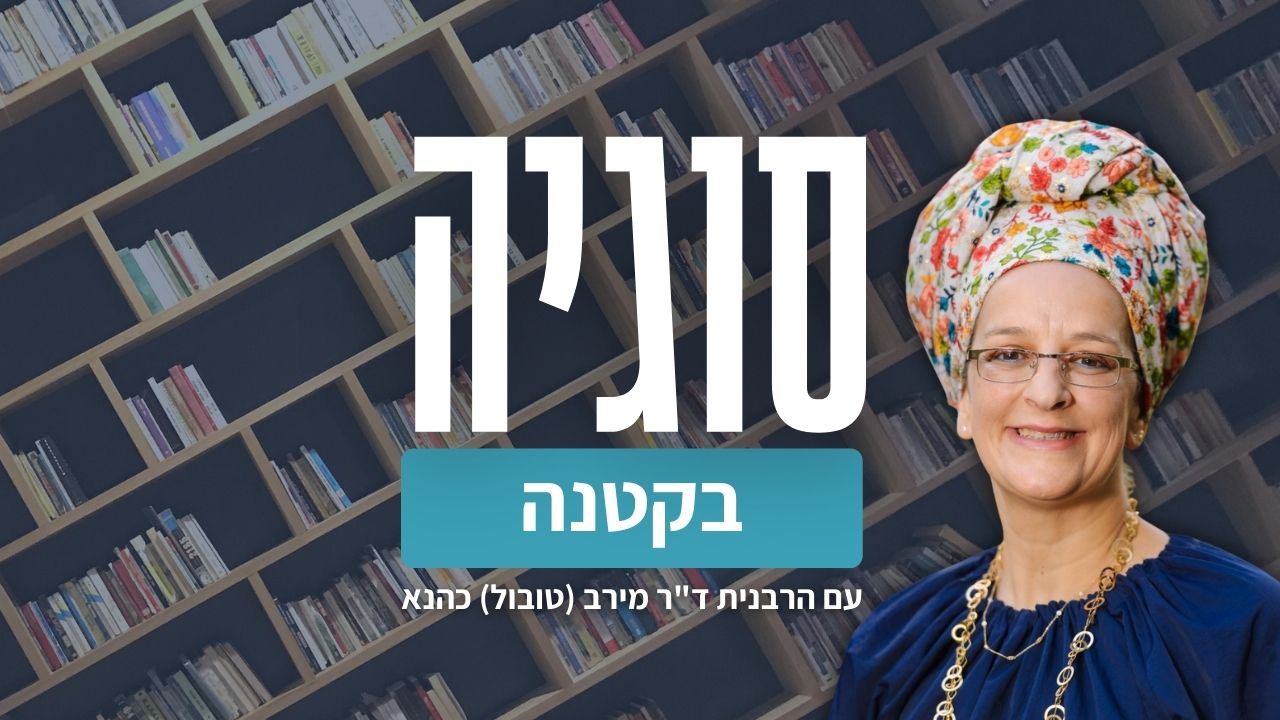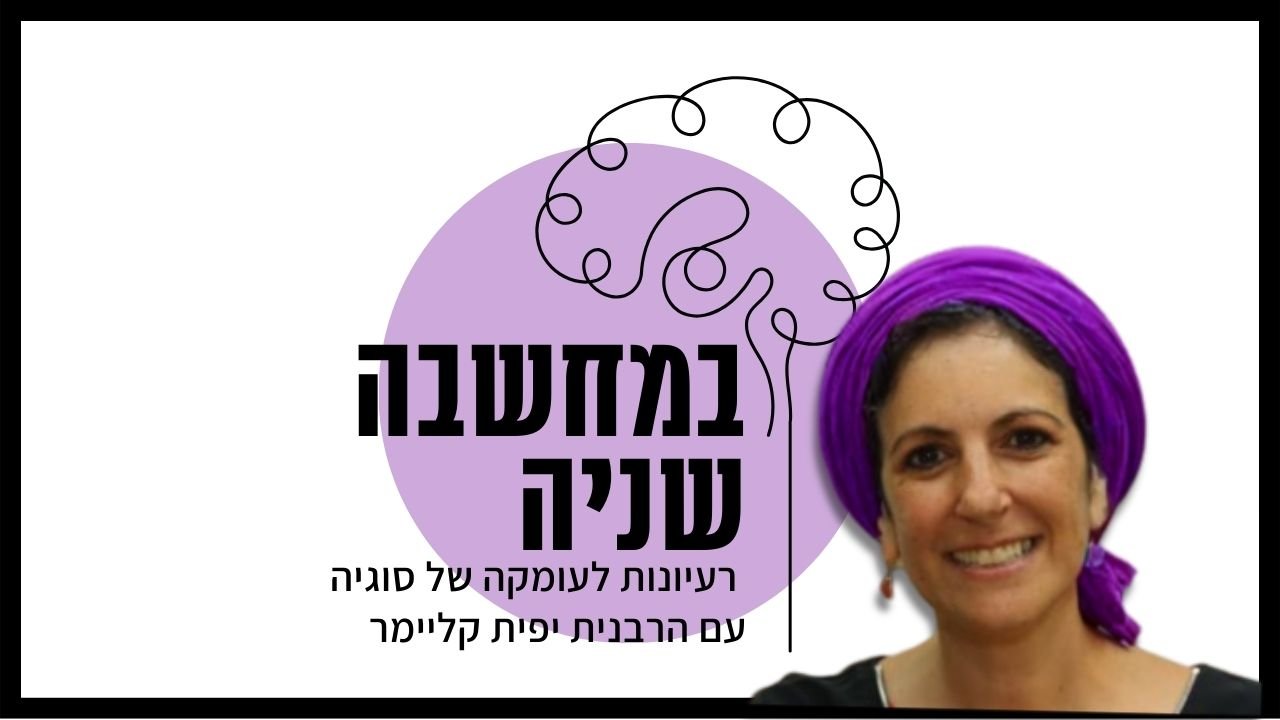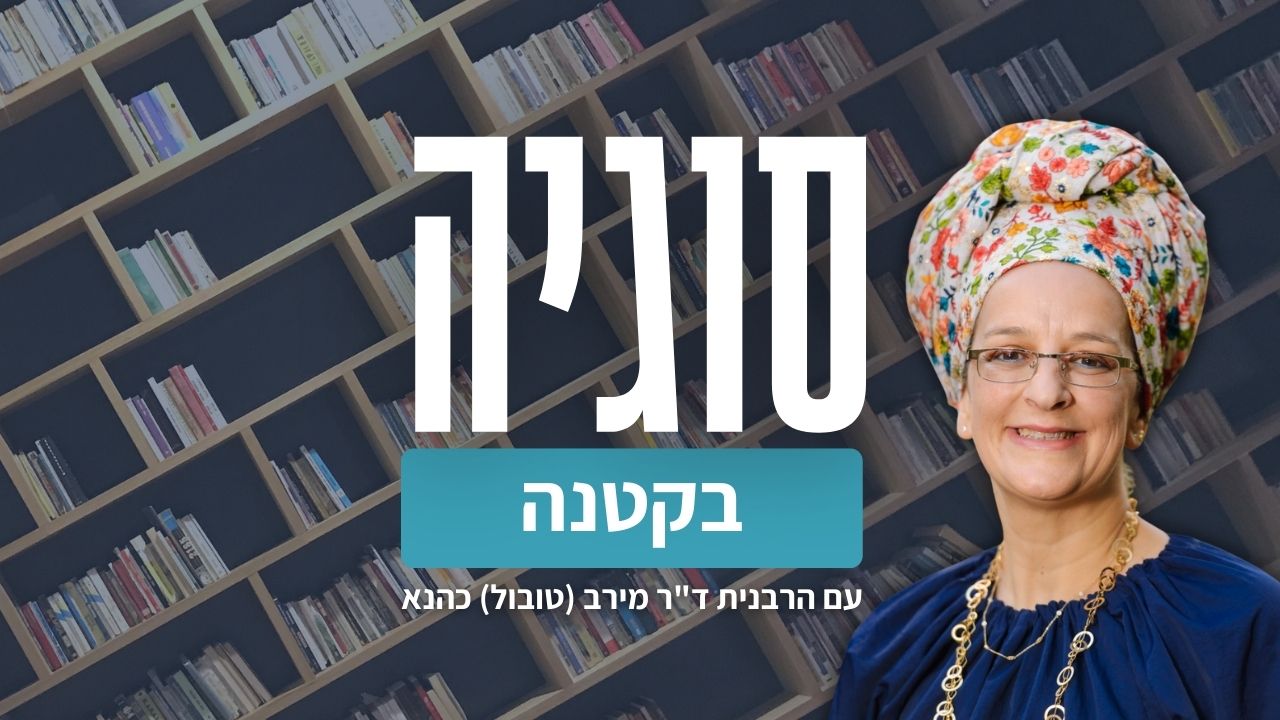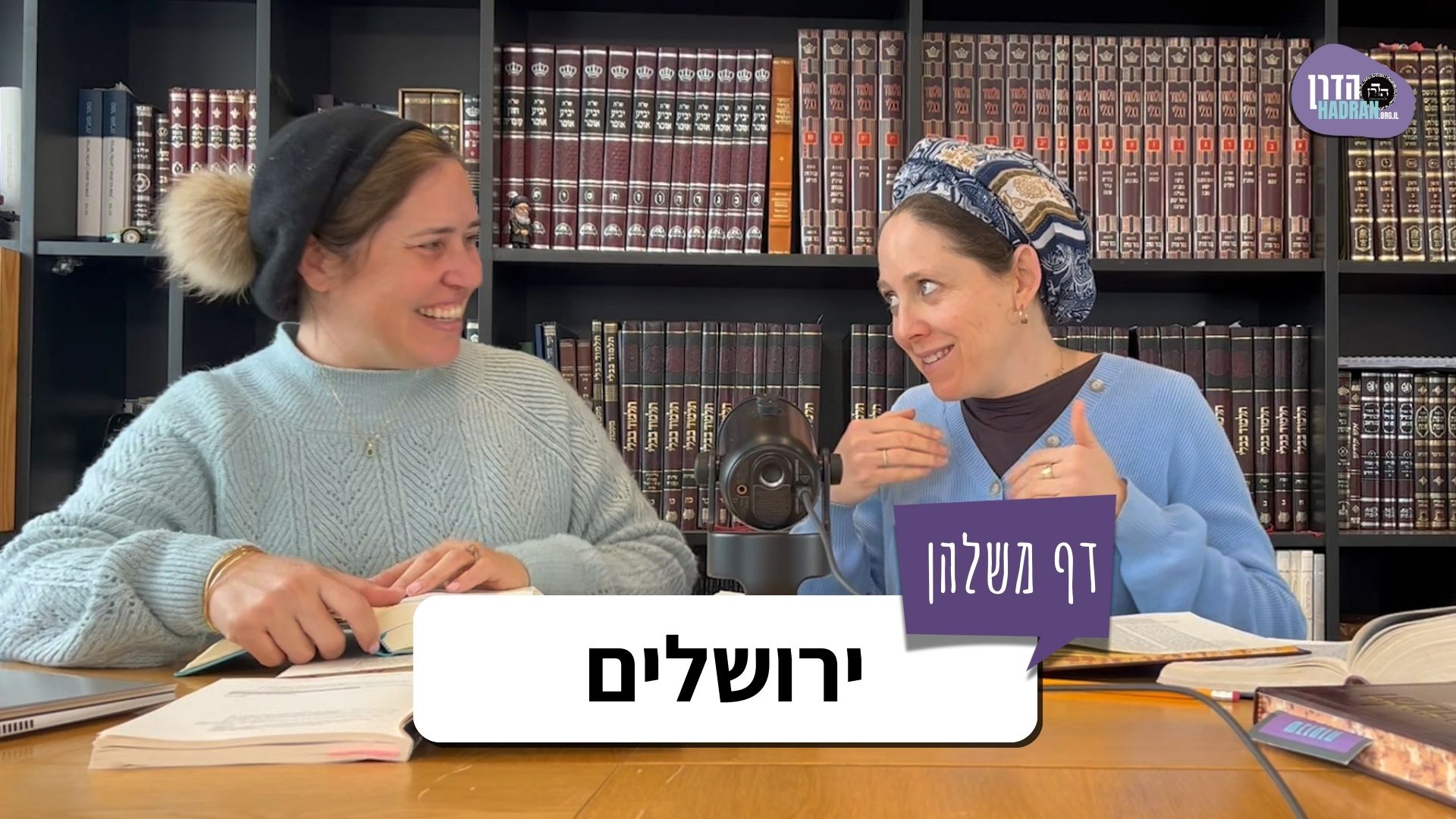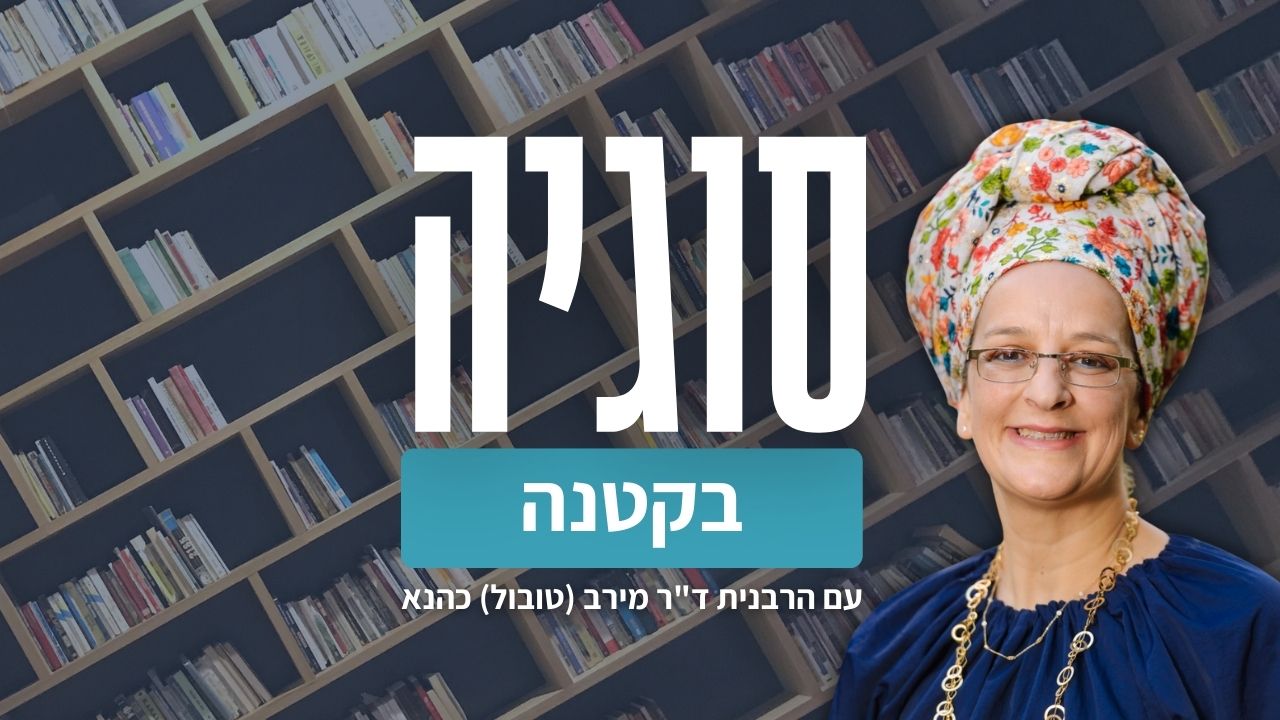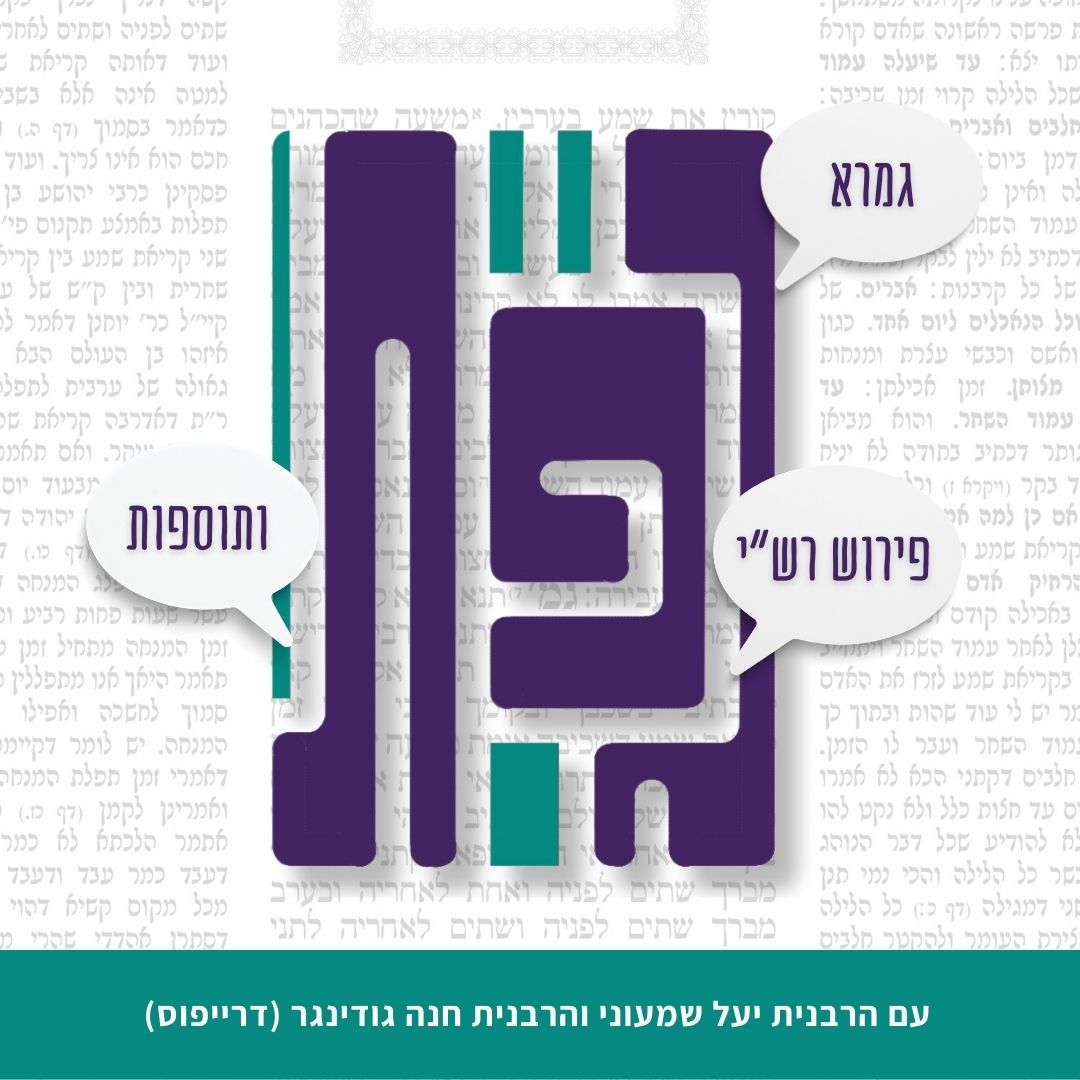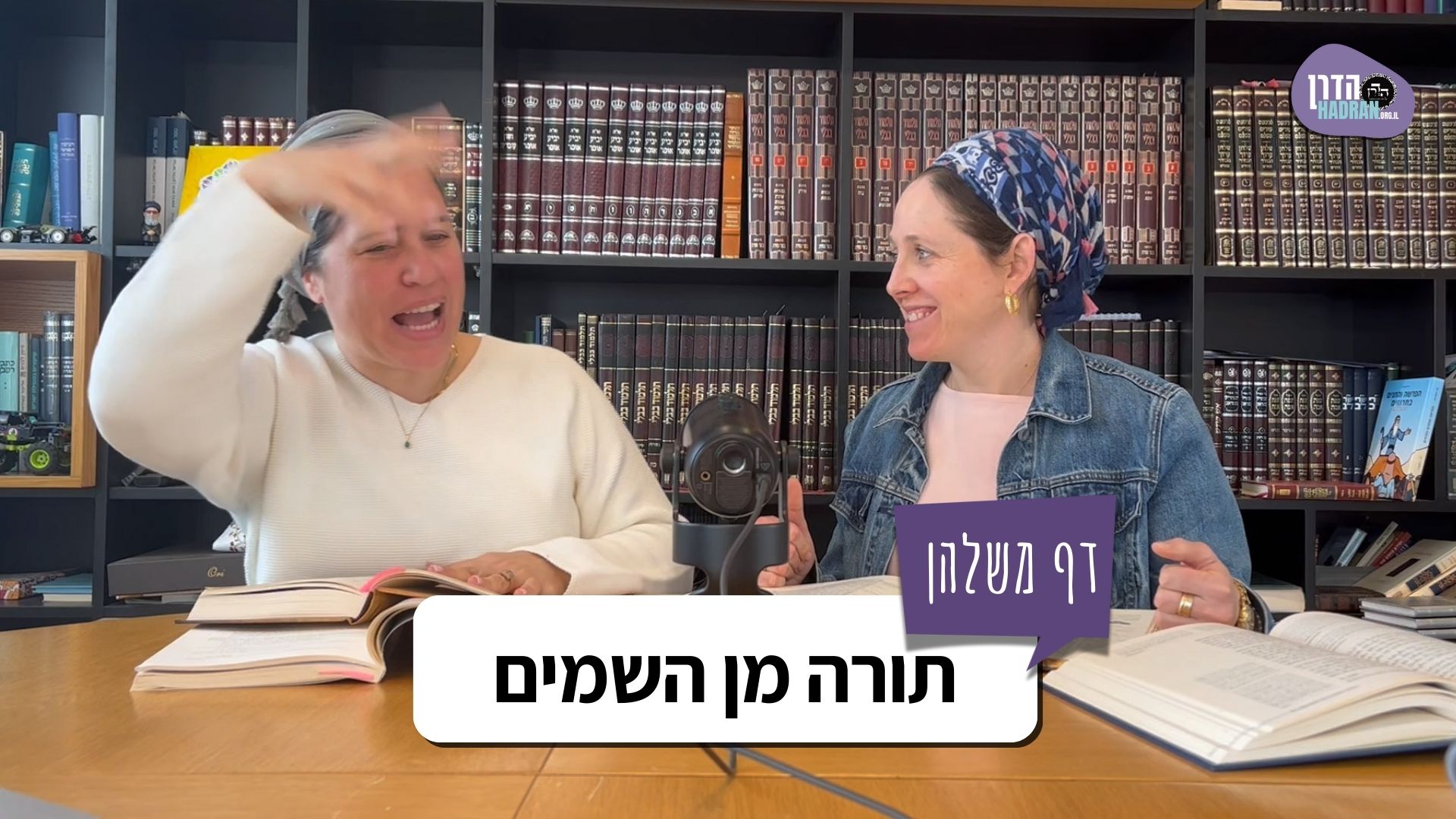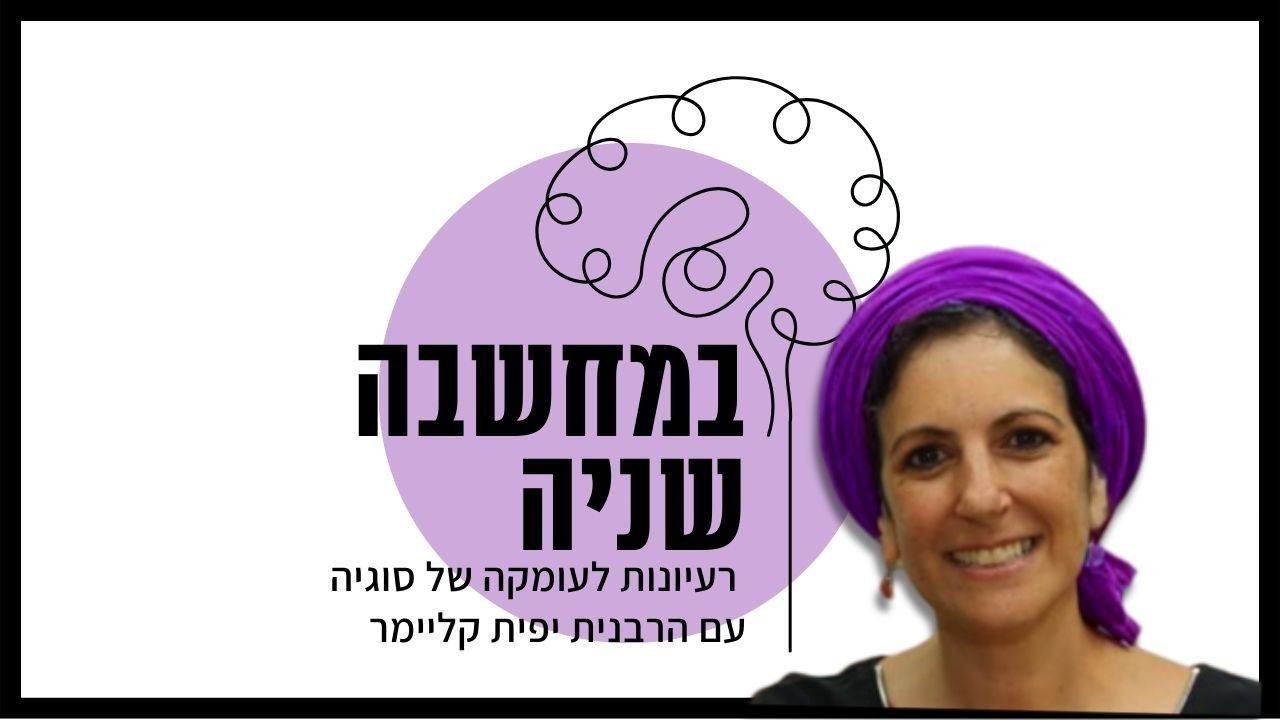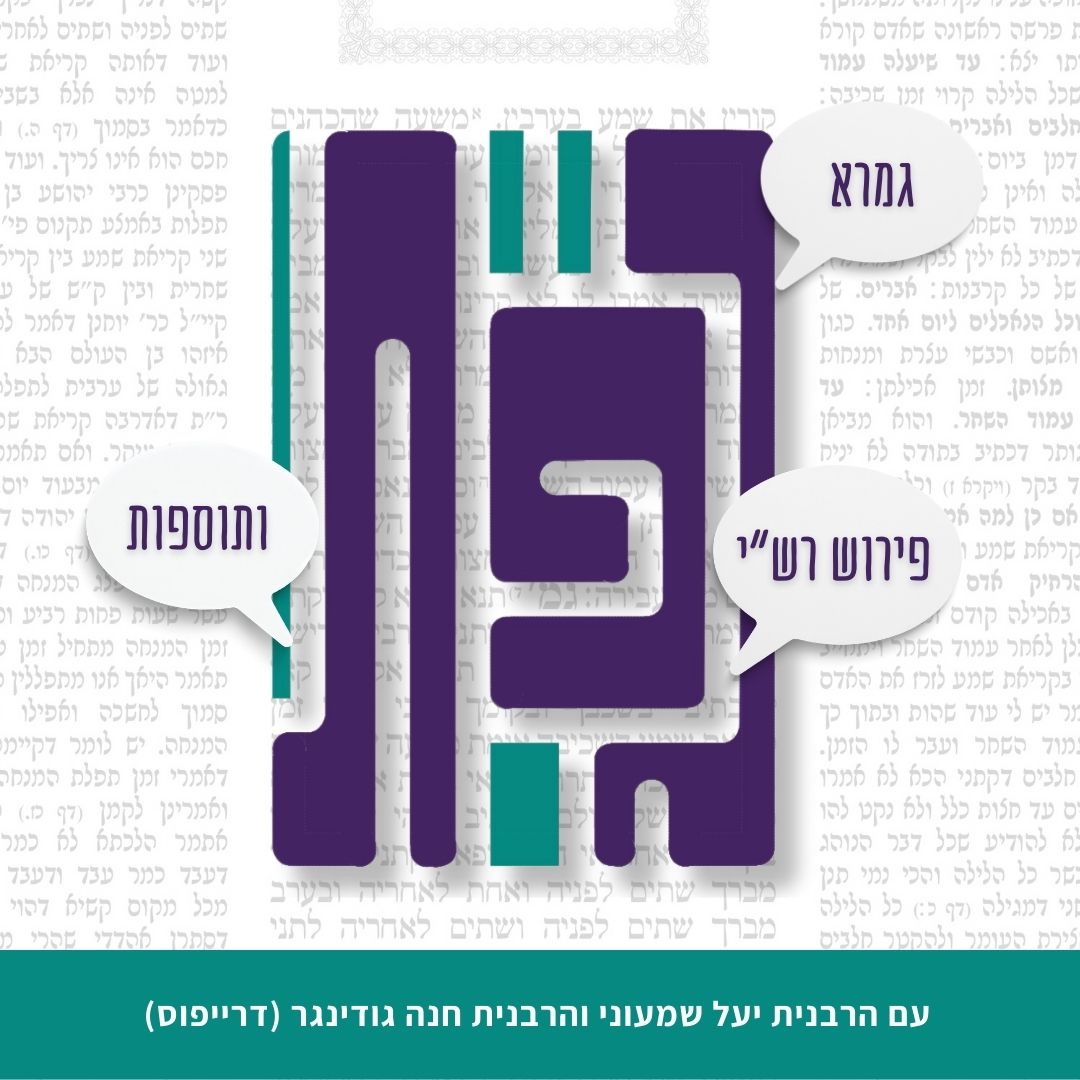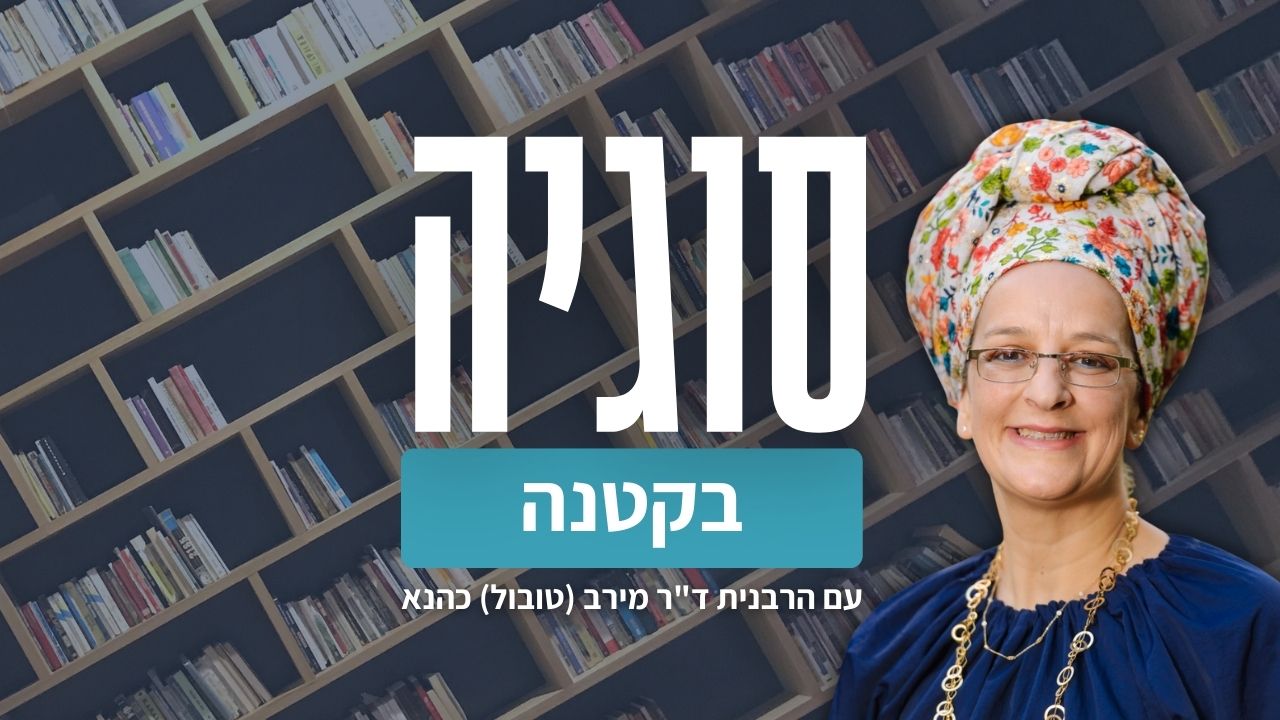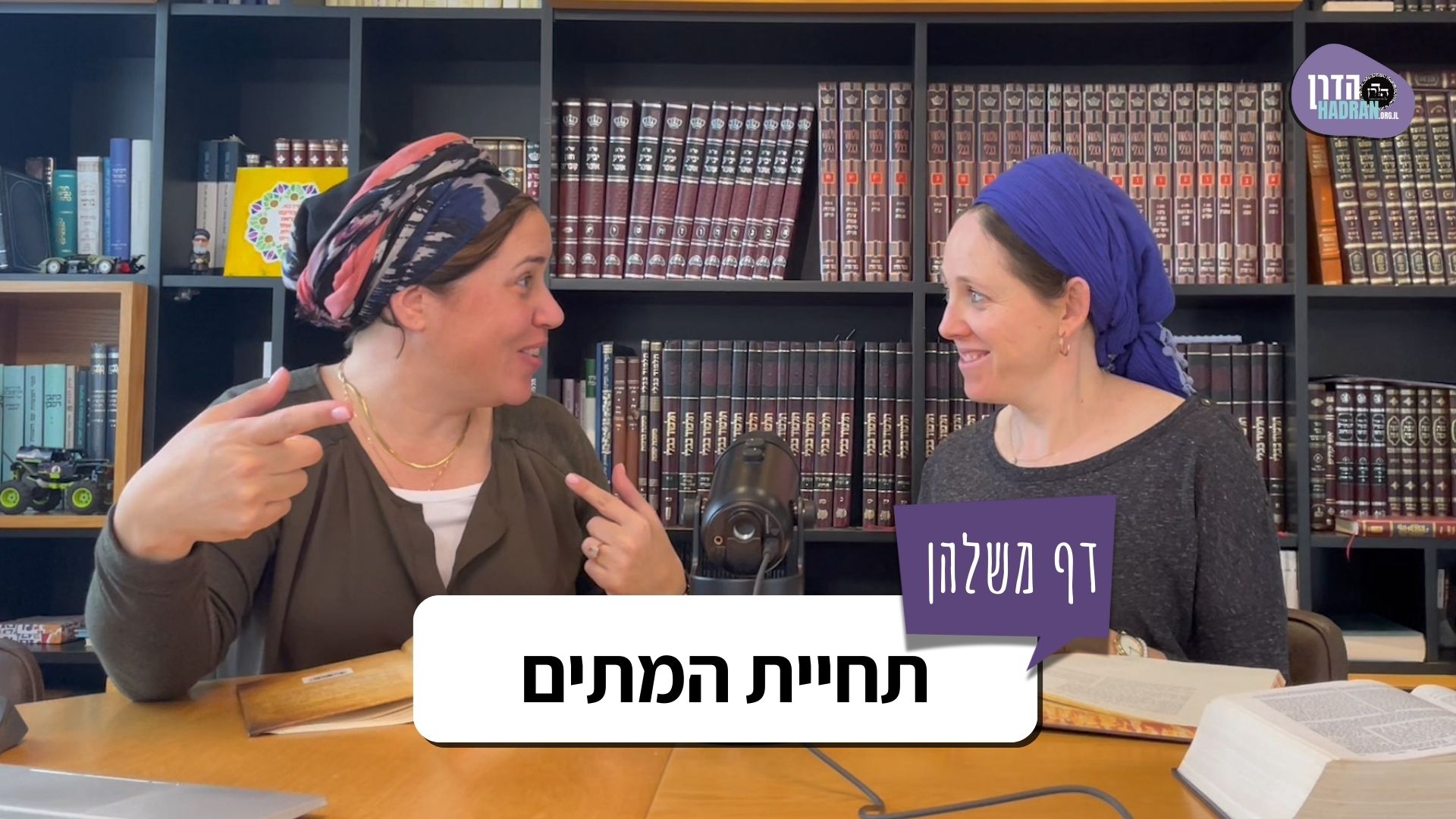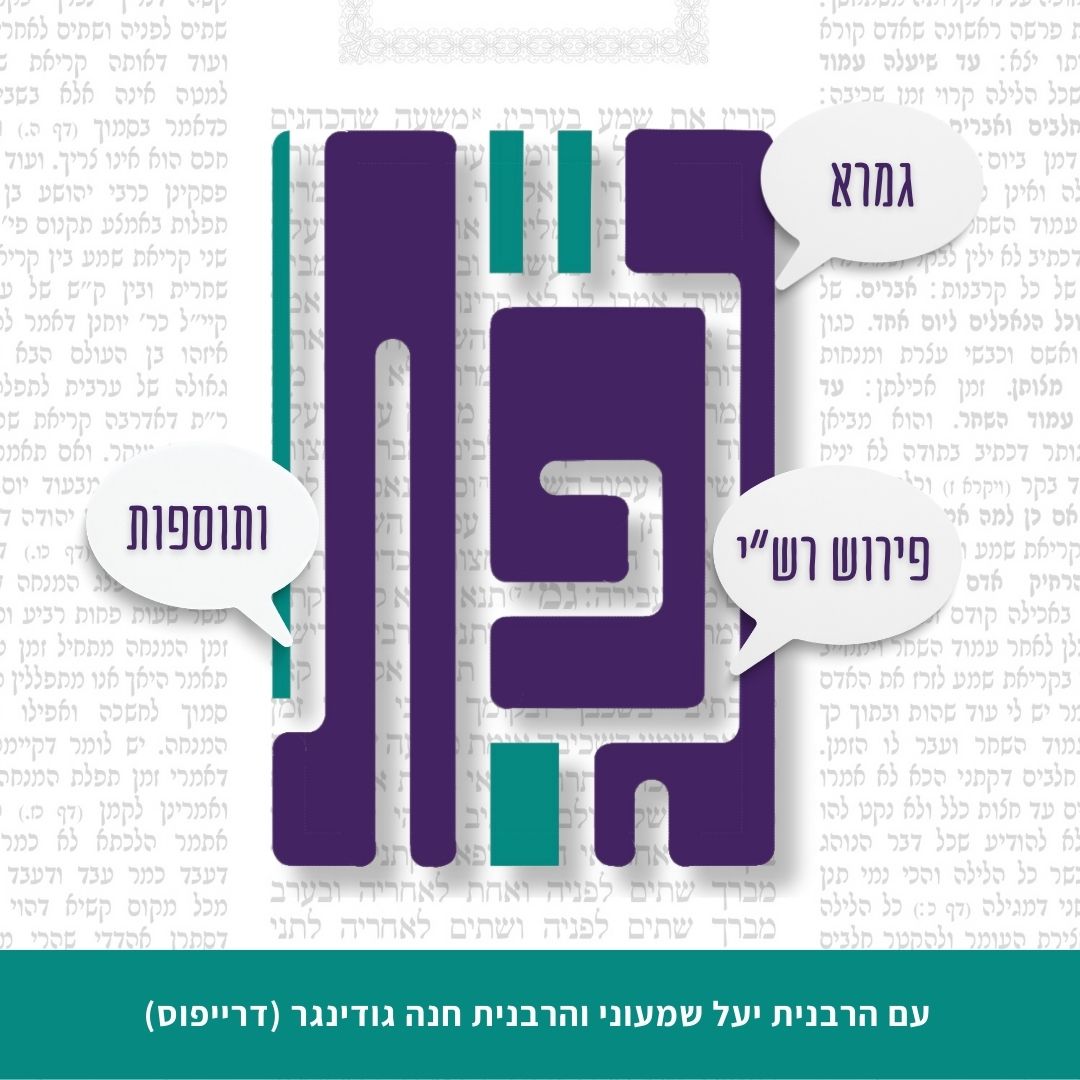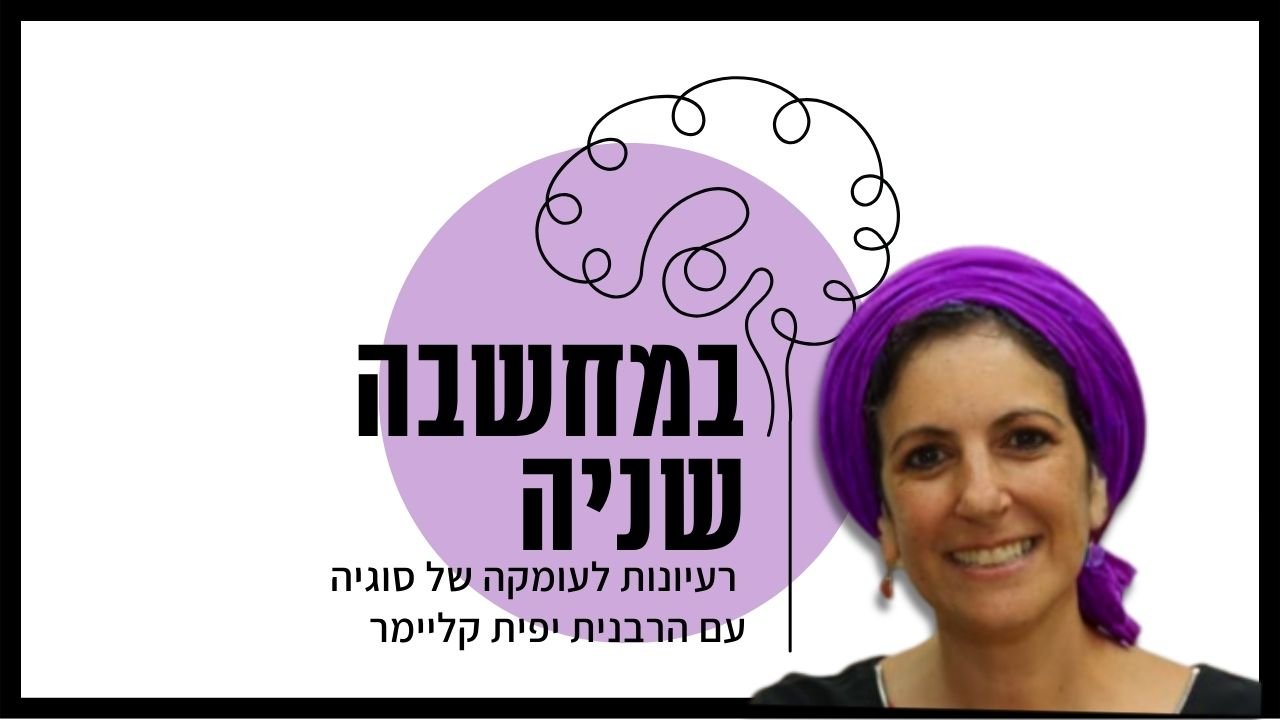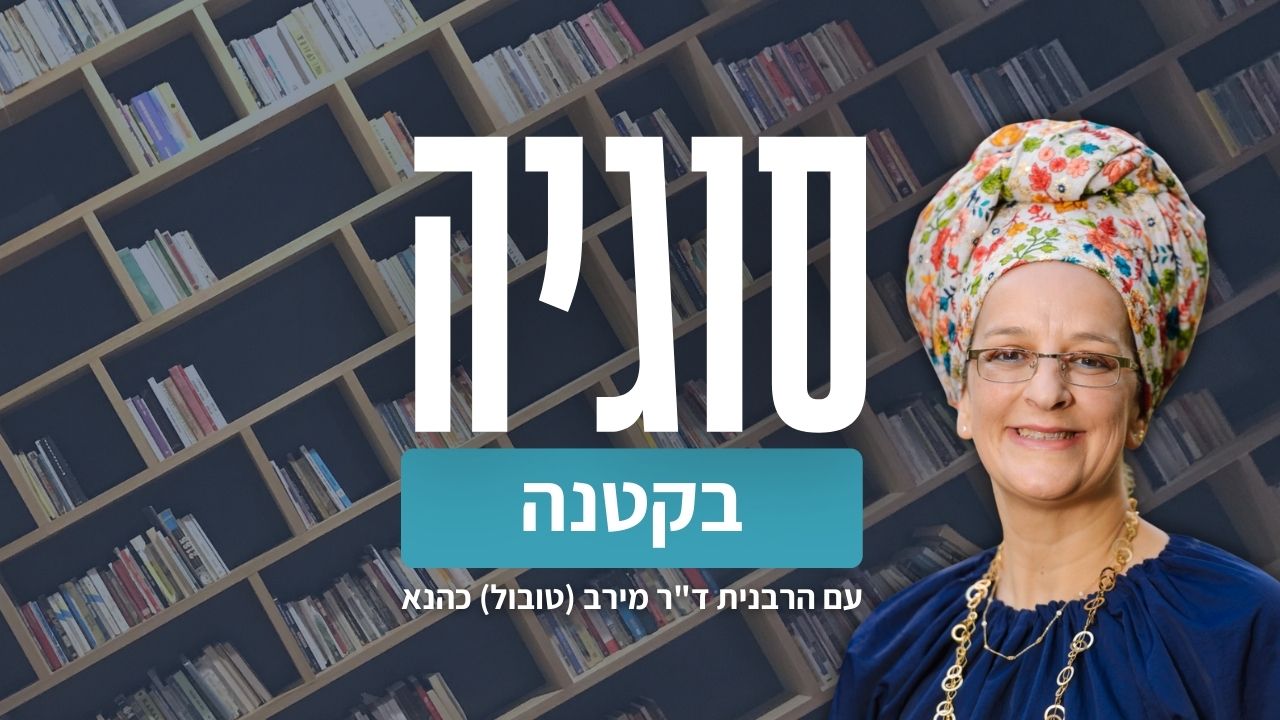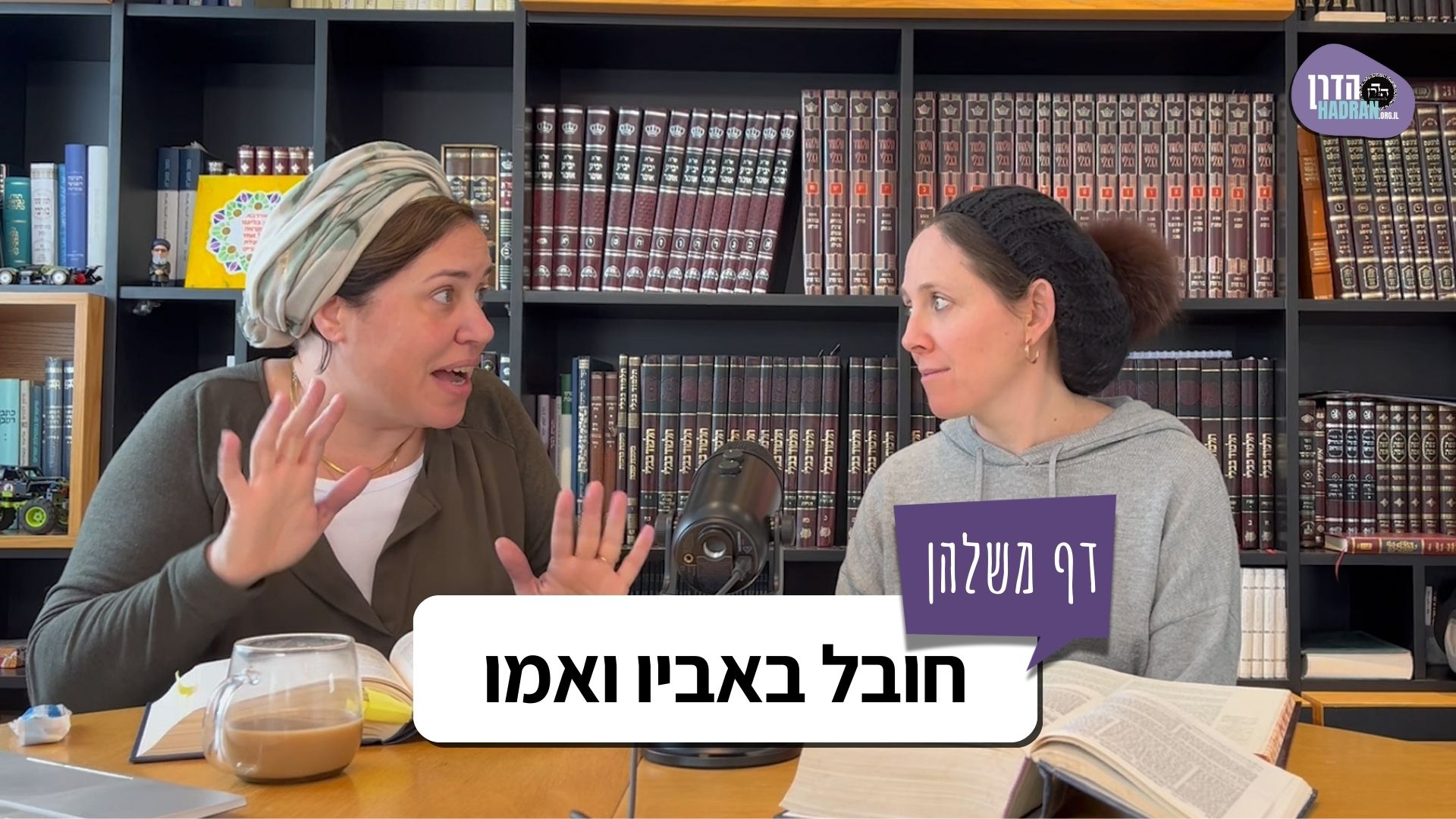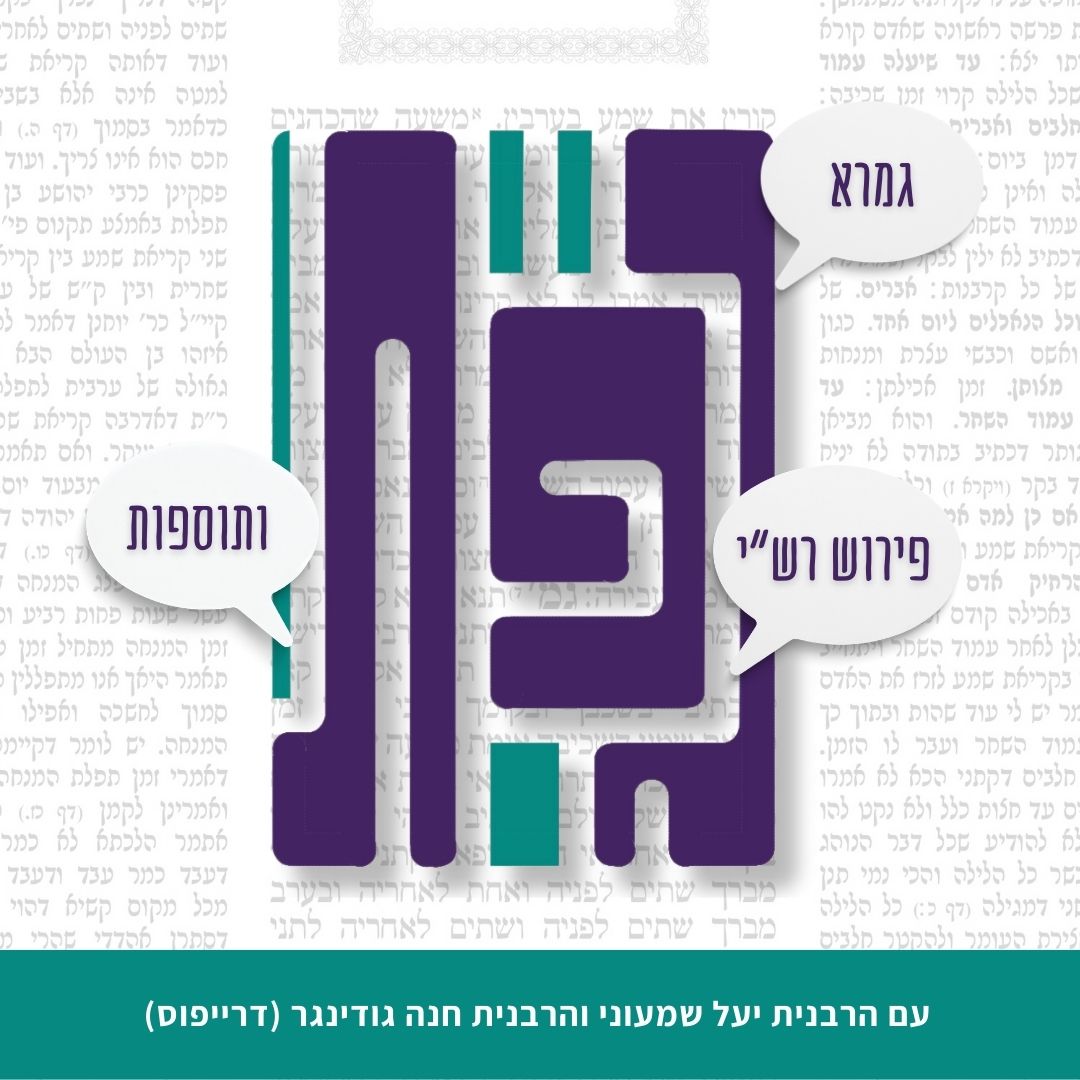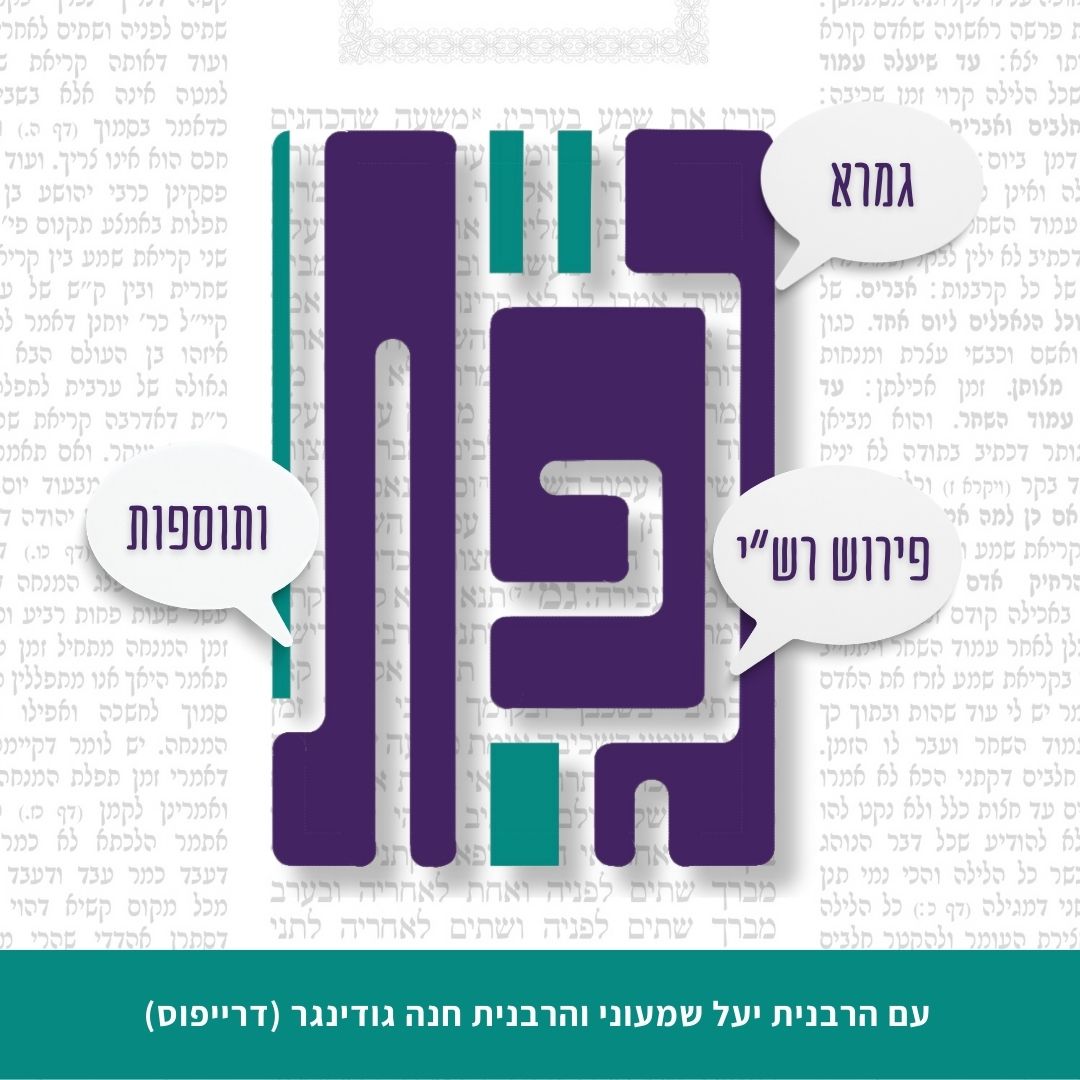סנהדרין י
״פְּלוֹנִי בָּא עַל אִשְׁתִּי״, הוּא וְאַחֵר מִצְטָרְפִין לְהוֹרְגוֹ, אֲבָל לֹא לְהוֹרְגָהּ.
If someone testifies: So-and-so engaged in intercourse with my wife, he and another may combine to execute him, the accused man, with his testimony, but the woman’s husband is not accepted as a witness to execute her. A person cannot testify concerning his wife or any other close relative.
מַאי קָא מַשְׁמַע לַן? דִּמְפַלְּגִינַן בְּדִיבּוּרָא? הַיְינוּ הָךְ! מַהוּ דְּתֵימָא: אָדָם קָרוֹב אֵצֶל עַצְמוֹ – אָמְרִינַן, אֵצֶל אִשְׁתּוֹ – לָא אָמְרִינַן. קָא מַשְׁמַע לַן.
The Gemara asks: What is this last scenario teaching us? Is it that we divide the statement of the witness in order to accept part of the testimony while rejecting the inadmissible part? This cannot be, as the principle in this case is identical to that case, in which the witness is not accepted to incriminate himself. The Gemara answers: The second case is necessary, lest you say: With regard to his own self, since a person is his own relative, we say that we divide the testimony. But with regard to his wife, one might think we do not say so, and the entire testimony must be either accepted or rejected. Therefore, the second case teaches us that even with regard to one’s wife, the statement is divided, and the testimony concerning his wife is disregarded.
וְאָמַר רָבָא: ״פְּלוֹנִי בָּא עַל נַעֲרָה הַמְאוֹרָסָה״, וְהוּזַּמּוּ – נֶהֱרָגִין, וְאֵין מְשַׁלְּמִין מָמוֹן. ״בִּתּוֹ שֶׁל פְּלוֹנִי״, וְהוּזַּמּוּ – נֶהֱרָגִין וּמְשַׁלְּמִין מָמוֹן. מָמוֹן לָזֶה וּנְפָשׁוֹת לָזֶה.
And Rava also says: If witnesses testify: So-and-so engaged in intercourse with a betrothed young woman (see Deuteronomy 22:25), without specifying the young woman in question, and they were rendered conspiring witnesses, they are executed, and they are not liable to pay money. Since they never specified the identity of the young woman, they were never in a position to cause anyone to lose part or all of her marriage contract. But if they specified: The young woman was the daughter of so-and-so, and they are rendered conspiring witnesses, they are executed, and they also pay money. Since in this case, the money is for this victim, i.e., the father of the young woman who stood to lose part or all of her marriage contract, and their lives are for that victim, i.e., the man and woman accused of adultery, they are liable to receive both punishments.
וְאָמַר רָבָא: ״פְּלוֹנִי רָבַע הַשּׁוֹר״ וְהוּזַּמּוּ – נֶהֱרָגִין, וְאֵין מְשַׁלְּמִין מָמוֹן. ״שׁוֹרוֹ שֶׁל פְּלוֹנִי״ וְהוּזַּמּוּ – נֶהֱרָגִין, וּמְשַׁלְּמִין מָמוֹן. מָמוֹן לָזֶה, וּנְפָשׁוֹת לָזֶה.
And Rava also says: If they testify: So-and-so engaged in bestiality with an ox (see Leviticus 18:23), which would theoretically result in the execution of both the person and the animal, without specifying which ox, and they were rendered conspiring witnesses, they are executed, as their testimony would have put the accused to death, and yet they are not liable to pay money for the ox, because their testimony did not pertain to any ox in particular. But if they specify: He engaged in bestiality with so-and-so’s ox, and they were rendered conspiring witnesses, they are executed, and they also pay money to the owner of the ox they sought to have killed. Since the money is for this victim, the owner whose ox would have been killed by the court, and their lives are for that victim, the man accused of engaging in bestiality with an animal, they are liable to receive both punishments.
הָא תּוּ לְמָה לִי? הַיְינוּ הָךְ! מִשּׁוּם דְּקָא בָעֵי בַּעְיָא עִילָּוֵיהּ, דְּבָעֵי רָבָא: ״פְּלוֹנִי רָבַע שׁוֹרִי״, מַהוּ? מִי אָמְרִינַן: אָדָם קָרוֹב אֵצֶל עַצְמוֹ, וְאֵין אָדָם קָרוֹב אֵצֶל מָמוֹנוֹ? אוֹ דִילְמָא אָמְרִינַן: אָדָם קָרוֹב אֵצֶל מָמוֹנוֹ? בָּתַר דְּבַעְיַאּ הֲדַר פַּשְׁטַהּ: אָדָם קָרוֹב אֵצֶל עַצְמוֹ, וְאֵין אָדָם קָרוֹב אֵצֶל מָמוֹנוֹ.
The Gemara asks: It seems that the case of the ox exemplifies the same principle as the case of the betrothed young woman. Why do I also need this case? This is essentially identical to that. The Gemara answers: The second case was necessary to clarify a point, because Rava raised a dilemma about it, as Rava raised a dilemma: If someone testifies: So-and-so engaged in bestiality with my ox, what is the halakha? Do we say: A person is his own relative concerning testimony, but a person does not have the status of a relative with regard to his property, and consequently the ox would also be executed because his testimony about his own animal is admissible? Or perhaps we say: A person has the status of a relative with regard to his property, and therefore his testimony about his ox is inadmissible? The Gemara says: After he raised the dilemma, he then resolved it: A person is his own relative, but a person does not have the status of a relative with regard to his property, so the ox is executed.
מַכּוֹת בִּשְׁלֹשָׁה כּוּ׳. מְנָהָנֵי מִילֵּי? אָמַר רַב הוּנָא: אָמַר קְרָא ״וּשְׁפָטוּם״ – שְׁנַיִם, וְאֵין בֵּית דִּין שָׁקוּל, מוֹסִיפִין עֲלֵיהֶם עוֹד אֶחָד. הֲרֵי כָּאן שְׁלֹשָׁה.
§ The mishna teaches: Cases concerning one who is accused of violating a prohibition that would render him liable to receive lashes must be judged by three judges. The Gemara asks: From where is this matter derived? Rav Huna says: The verse states: “If there will be a controversy between men, and they come to judgment, and the judges judge them, and they shall justify the just, and they shall condemn the wicked. Then it shall be, if the wicked man deserves to be beaten, that the judge shall cause him to lie down, and to be beaten before his face” (Deuteronomy 25:1–2). When it states: “And the judges judge them,” in the plural, this indicates a minimum of two judges. And since a court may not be composed of an even number of judges, the court adds to them one more, and there are a total of three judges here.
אֶלָּא מֵעַתָּה, ״וְהִצְדִּיקוּ״ – שְׁנַיִם, ״וְהִרְשִׁיעוּ״ – שְׁנַיִם, הֲרֵי כָּאן שִׁבְעָה? הָהוּא מִיבְּעֵי לֵיהּ כִּדְעוּלָּא, דְּאָמַר עוּלָּא: רֶמֶז לְעֵדִים זוֹמְמִין מִן הַתּוֹרָה מִנַּיִן?
The Gemara asks: If that is so, that the plural verbs in the verse each indicate two judges, the term: “And they shall justify,” indicates another two, and the term: “And they shall condemn,” indicates another two, so that there are a total of seven here. The Gemara answers: Rav Huna requires that pair of terms in accordance with the opinion of Ulla, as Ulla says: From where in the Torah is there an allusion to the halakha of conspiring witnesses?
רֶמֶז לְעֵדִים זוֹמְמִין?! וְהָא כְּתִיב: ״כַּאֲשֶׁר זָמַם״! אֶלָּא, רֶמֶז לְעֵדִים זוֹמְמִין שֶׁלּוֹקִין מִנַּיִין? דִּכְתִיב: ״וְהִצְדִּיקוּ אֶת הַצַּדִּיק וְהִרְשִׁיעוּ אֶת הָרָשָׁע״.
The Gemara interrupts with a question: An allusion to the halakha of conspiring witnesses? But it is written explicitly: “Then you shall do to him as he had planned to do to his brother” (Deuteronomy 19:19). Why would there be a need for an allusion? Rather, Ulla meant: From where in the Torah is there an allusion to the halakha that conspiring witnesses are flogged? Ulla answers: As it is written: “And they shall justify the just, and they shall condemn the wicked. Then it shall be, if the wicked man deserves to be beaten, that the judge shall cause him to lie down, and to be beaten before his face.”
מִשּׁוּם דְּ״הִצְדִּיקוּ אֶת הַצַּדִּיק וְהִרְשִׁיעוּ אֶת הָרָשָׁע״, ״וְהָיָה אִם בִּן הַכּוֹת הָרָשָׁע״? אֶלָּא, עֵדִים שֶׁהִרְשִׁיעוּ אֶת הַצַּדִּיק, וַאֲתוֹ עֵדֵי אַחֲרִינֵי וְהִצְדִּיקוּ אֶת הַצַּדִּיק דְּמֵעִיקָּרָא, וְשַׁוִּינְהוּ לְהָנָךְ רְשָׁעִים, ״וְהָיָה אִם בִּן הַכּוֹת הָרָשָׁע״.
The Gemara explains the derivation: Due to the fact that the terms in the verse: “They shall justify the just, and they shall condemn the wicked” indicate a financial dispute in which one party is vindicated and the other is required to pay, does it follow that, as the verse continues: “Then it shall be, if the wicked man deserves to be beaten”? Why would the verdict’s being rendered in the other party’s favor mean that the losing party is flogged? Rather, the verse must be discussing the witnesses and not the litigants. If conspiring witnesses condemned the just one, and other witnesses came and justified the one who was really the just one from the beginning and rendered these conspiring witnesses wicked, then, as the verse continues: “Then it shall be, if the wicked man deserves to be beaten, that the judge shall cause him to lie down, and to be beaten before his face.” This indicates that the witnesses are subject to lashes.
וְתִיפּוֹק לֵיהּ מִ״לֹּא תַעֲנֶה״! מִשּׁוּם דְּהָוֵה לֵיהּ לָאו שֶׁאֵין בּוֹ מַעֲשֶׂה, וְכׇל לָאו שֶׁאֵין בּוֹ מַעֲשֶׂה אֵין לוֹקִין עָלָיו.
The Gemara asks: Why does this halakha require a specific derivation? But since there is a principle that one is subject to lashes for violating any prohibition, why not derive this punishment from the prohibition: “You shall not testify as a false witness against your neighbor” (Exodus 20:13)? The Gemara answers: That verse is insufficient, because it is a prohibition that does not involve an action, but only speech, and with regard to any prohibition that does not involve an action, one is not flogged for it.
מִשּׁוּם רַבִּי יִשְׁמָעֵאל אָמְרוּ: בְּעֶשְׂרִים וּשְׁלֹשָׁה. מַאי טַעְמָא דְּרַבִּי יִשְׁמָעֵאל? אָמַר אַבָּיֵי: אָתְיָא ״רָשָׁע״ ״רָשָׁע״ מֵחַיָּיבֵי מִיתוֹת. כְּתִיב הָכָא: ״וְהָיָה אִם בִּן הַכּוֹת הָרָשָׁע״, וּכְתִיב הָתָם: ״אֲשֶׁר הוּא רָשָׁע לָמוּת״. מָה לְהַלָּן בְּעֶשְׂרִים וּשְׁלֹשָׁה, אַף כָּאן בְּעֶשְׂרִים וּשְׁלֹשָׁה.
§ The mishna teaches: It was stated in the name of Rabbi Yishmael: Cases concerning lashes must be adjudicated by twenty-three judges. The Gemara asks: What is the reasoning of Rabbi Yishmael? Abaye said: This is derived by means of a verbal analogy between one instance of the term wicked and another instance of the term wicked, from the halakha of those liable to receive death penalties. It is written here, with regard to lashes: “Then it shall be, if the wicked man deserves to be beaten,” and it is written there, with regard to a murderer: “That is a wicked man guilty of death” (Numbers 35:31). Just as there, with regard to the trial of the murderer, the case is tried by twenty-three judges, so too here, the case of lashes must be tried by twenty-three judges.
רָבָא אָמַר: מַלְקוֹת בִּמְקוֹם מִיתָה עוֹמֶדֶת. אָמַר רַב אַחָא בְּרֵיהּ דְּרָבָא לְרַב אָשֵׁי: אִי הָכִי, אוּמְדָּנָא לְמָה לִי? לִמְחֲיֵיהּ, וְאִי מָאֵית – לֵימוּת!
Rava says: A verbal analogy is unnecessary. Conceptually, lashes stand in place of execution. As corporal punishment is a kind of replacement for capital punishment, it must be judged in the manner of capital punishments, by a court of twenty-three. Rav Aḥa, son of Rava, said to Rav Ashi: If so, that lashes stand in place of execution, why do I need an assessment? Before administering lashes, the court consults with a physician to assess how many lashes the transgressor can withstand and adjusts the number of lashes so that the transgressor’s life will not be threatened. But if Rava is correct, why is this necessary? Let the court strike him, and if the transgressor dies, let him die.
אֲמַר לֵיהּ: אָמַר קְרָא: ״וְנִקְלָה אָחִיךָ לְעֵינֶיךָ״ – כִּי מָחֵית, אַגַּבָּא דְּחָיֵי מָחֵית. אֶלָּא הָא דְּתַנְיָא: אֲמָדוּהוּ לְקַבֵּל עֶשְׂרִים – אֵין מַכִּין אוֹתוֹ אֶלָּא מַכּוֹת הָרְאוּיוֹת לְהִשְׁתַּלֵּשׁ. וְכַמָּה הֵן? תַּמְנֵי סְרֵי,
Rav Ashi said to Rav Aḥa, son of Rava: The verse states: “Then your brother will be dishonored before your eyes” (Deuteronomy 25:3). This teaches that when you strike, you strike upon the back of a live person. After he is dead, he is not called: Your brother. Rav Aḥa, son of Rava, continued to ask Rav Ashi: But with regard to that which is taught in a baraita (Tosefta, Makkot 4:6): If they assessed him to be strong enough to absorb twenty lashes, they flog him only with a number of lashes that can be divided into threes, as lashes are administered in sets of three, two behind and one in front. And how many are they? Eighteen.
לִמְחֲיֵיהּ עֶשְׂרִים וַחֲדָא, וְכִי מָיֵית בְּהָךְ חֲדָא – לֵימוּת, דְּהָא כִּי מָחֵי אַגַּבָּא דְּחַיָּיא קָא מָחֵי. אֲמַר לֵיהּ: אָמַר קְרָא ״וְנִקְלָה אָחִיךָ לְעֵינֶיךָ״ – אַחַר שֶׁלָּקָה, ״אָחִיךָ״ בָּעֵינָא, וְלֵיכָּא.
Let the court strike him with twenty-one lashes, and if he dies with this last one, let him die. According to the medical evaluation, he will still be alive after the twentieth lash. There would be no concern of flogging a dead man, as when the court strikes him with the twenty-first lash, it is upon the back of a living man that the court is striking. If so, why should he not receive the last blow? Rav Ashi said to him: The verse states: “Then your brother will be dishonored before your eyes.” The verse means: Even after he is hit, I need him to remain your brother; and if he dies, he is no longer your brother.
עִיבּוּר הַחֹדֶשׁ בִּשְׁלֹשָׁה. חִישּׁוּב לָא קָתָנֵי, קִידּוּשׁ לָא קָתָנֵי, אֶלָּא עִיבּוּר. לָא לִיקַדְּשֵׁיהּ, וּמִמֵּילָא לִעַבַּר?
§ The mishna teaches: The intercalation of the month is performed by a panel of three judges. The Gemara extrapolates: The tanna does not teach: The calculation to determine if the month must be extended is performed by three judges, and he does not teach: The sanctification of the new month is performed by three judges; rather, he teaches: The intercalation of the month, referring to the decision to extend the month by an extra day and begin the following month on the thirty-first day instead of the thirtieth, is performed by a panel of three judges. The Gemara asks: Why are judges necessary to extend the month? Simply do not sanctify the new month, and let the previous month be intercalated by itself. When the thirtieth day of any month is not declared the first day of the new month, the earlier month is extended by default. Why, then, does the mishna specify: Intercalation?
אָמַר אַבָּיֵי: תְּנִי קִידּוּשׁ הַחֹדֶשׁ. תַּנְיָא נָמֵי הָכִי: קִידּוּשׁ הַחֹדֶשׁ וְעִיבּוּר הַשָּׁנָה בִּשְׁלֹשָׁה, דִּבְרֵי רַבִּי מֵאִיר. אָמַר רָבָא: וְהָא ״עִיבּוּר״ קָתָנֵי! אֶלָּא אָמַר רָבָא: קִידּוּשׁ בְּיוֹם עִיבּוּר בִּשְׁלֹשָׁה, אַחַר עִיבּוּר לֵיכָּא קִידּוּשׁ.
Abaye said: Emend the text of the mishna and teach: The sanctification of the new month is performed by three judges. This is also taught in a baraita (Tosefta 2:1): The sanctification of the new month and the intercalation of the year is performed by three judges; this is the statement of Rabbi Meir. Rava said in objection to Abaye’s explanation: But the mishna teaches: Intercalation, not sanctification. Rather, Rava said: Explain the mishna this way: If there will be sanctification of the new month on the thirtieth day of the first month, which is the day that would otherwise be the intercalation, this is done by three judges. But after the day of the intercalation, i.e., if the month is sanctified on the thirty-first day, there is no active sanctification necessary.
וּמַנִּי? רַבִּי אֶלְעָזָר בֶּן צָדוֹק הִיא. דְּתַנְיָא, רַבִּי אֶלְעָזָר בֶּן צָדוֹק אוֹמֵר: אִם לֹא נִרְאָה בִּזְמַנּוֹ – אֵין מְקַדְּשִׁין אוֹתוֹ, שֶׁכְּבָר קִידְּשׁוּהוּ בַּשָּׁמַיִם.
And in accordance with whose opinion is this? It is in accordance with the opinion of Rabbi Elazar ben Tzadok, as it is taught in a mishna (Rosh HaShana 24a): Rabbi Elazar ben Tzadok says: If the new moon was not seen at its anticipated time, the court does not formally sanctify the New Moon on the following day, as the celestial court in Heaven has already sanctified it, precluding the need for the additional sanctification by the earthly court.
רַב נַחְמָן אָמַר: קִידּוּשׁ אַחַר עִיבּוּר – בִּשְׁלֹשָׁה, בְּיוֹם עִיבּוּר – לֵיכָּא קִידּוּשׁ. וּמַנִּי? פְּלֵימוֹ הִיא, דְּתַנְיָא, פְּלֵימוֹ אוֹמֵר: בִּזְמַנּוֹ – אֵין מְקַדְּשִׁין אוֹתוֹ, שֶׁלֹּא בִּזְמַנּוֹ – מְקַדְּשִׁין אוֹתוֹ.
Taking the opposite opinion, Rav Naḥman says: In the instance of sanctification of the new moon after the intercalation of the month through the addition of a thirtieth day to the previous month, the sanctification is performed by three judges. But if the New Moon is declared on the day of the intercalation, so that the previous month is left with only twenty-nine days, there is no active sanctification. This is the standard time for the New Moon, and no intervention is necessary. And in accordance with whose opinion is this? It is in accordance with the opinion of Peleimu, as it is taught in a baraita: Peleimu says: If the new moon was reported at its anticipated time, the court does not sanctify the New Moon. But if the new moon was reported not at its anticipated time, the court sanctifies the New Moon.
רַב אָשֵׁי אָמַר: לְעוֹלָם חִישּׁוּב קָתָנֵי, וּמַאי עִיבּוּר? חִישּׁוּב דְּעִיבּוּר. וְאַיְּדֵי דְּקָבָעֵי לְמִיתְנֵי עִיבּוּר שָׁנָה, תְּנָא נָמֵי עִיבּוּר חוֹדֶשׁ.
Rav Ashi said: Actually, the mishna teaches that three judges are necessary for the calculation to determine when the New Moon should be declared. And what is the term: Intercalation, that is mentioned in the mishna? It is the calculation of the intercalation. And although the wording of the mishna is imprecise, it is written this way for a reason: Since the mishna needed to teach the number of judges necessary for the intercalation of the year, the mishna also taught: The intercalation of the month, so as to describe the similar processes of adding to the year and adding to the month with the same verb.
חִישּׁוּב חוֹדֶשׁ – אִין, קִידּוּשׁ חוֹדֶשׁ – לָא. מַנִּי? רַבִּי אֱלִיעֶזֶר הִיא, דְּתַנְיָא: רַבִּי אֱלִיעֶזֶר אוֹמֵר, בֵּין בִּזְמַנּוֹ בֵּין שֶׁלֹּא בִּזְמַנּוֹ אֵין מְקַדְּשִׁין אוֹתוֹ, שֶׁנֶּאֱמַר: ״וְקִדַּשְׁתֶּם אֵת שְׁנַת הַחֲמִשִּׁים שָׁנָה״. שָׁנִים אַתָּה מְקַדֵּשׁ, וְאִי אַתָּה מְקַדֵּשׁ חֳדָשִׁים.
The Gemara notes: With regard to the calculation of the month, yes, this requires three judges. But with regard to the sanctification of month, this does not require three judges. In accordance with whose opinion is this? It is in accordance with the opinion of Rabbi Eliezer. As it is taught in a baraita: Rabbi Eliezer says: Whether it was reported in its anticipated time or whether it was reported not in its anticipated time, we do not sanctify the New Moon formally, as it is stated: “And you shall sanctify the fiftieth year” (Leviticus 25:10), which teaches: You must formally sanctify years, but you do not formally sanctify months, as they are sanctified automatically. In any case, calculation, when necessary, is performed by three judges.
רַבָּן שִׁמְעוֹן בֶּן גַּמְלִיאֵל אוֹמֵר: בִּשְׁלֹשָׁה כּוּ׳. תַּנְיָא: כֵּיצַד אָמַר רַבָּן שִׁמְעוֹן בֶּן גַּמְלִיאֵל? בִּשְׁלֹשָׁה מַתְחִילִין, וּבַחֲמִשָּׁה נוֹשְׂאִין וְנוֹתְנִין, וְגוֹמְרִין בְּשִׁבְעָה. אֶחָד אוֹמֵר לֵישֵׁב, וּשְׁנַיִם אוֹמְרִים שֶׁלֹּא לֵישֵׁב – בָּטֵל יָחִיד בְּמִיעוּטוֹ.
§ The mishna teaches: Rabban Shimon ben Gamliel says that intercalation is performed in stages: The deliberations begin with three judges, they debate the matter with five judges, and they conclude the matter with seven judges. The Gemara elaborates: It is taught in a baraita (Tosefta 2:1): How does Rabban Shimon ben Gamliel say the intercalation is to be conducted? The court begins the deliberation with three judges, and they debate the matter with five, and they conclude with seven. At first, three judges convene for a preliminary discussion with regard to the necessity of adding a month to the year. If one says it is necessary to sit and deliberate the question of intercalation and two say that there is not a need to sit and continue, the single opinion in favor of intercalation is negated in its minority, i.e., it is the minority opinion, and the process ends.
שְׁנַיִם אוֹמְרִים לֵישֵׁב, וְאֶחָד אוֹמֵר שֶׁלֹּא לֵישֵׁב – מוֹסִיפִין עֲלֵיהֶם עוֹד שְׁנַיִם, וְנוֹשְׂאִין וְנוֹתְנִין בַּדָּבָר. שְׁנַיִם אוֹמְרִים צְרִיכָה, וּשְׁלֹשָׁה אוֹמְרִים אֵינָהּ צְרִיכָה – בָּטְלוּ שְׁנַיִם בְּמִיעוּטָן. שְׁלֹשָׁה אוֹמְרִים צְרִיכָה, וּשְׁנַיִם אוֹמְרִים אֵינָהּ צְרִיכָה – מוֹסִיפִין עֲלֵיהֶם עוֹד שְׁנַיִם, שֶׁאֵין הַמִּנְיָן פָּחוֹת מִשִּׁבְעָה.
The baraita continues: If two say to sit and one says not to sit, the majority decision causes the process to move to the next stage, and the court then adds another two judges to them and all five debate the matter. If two say: The year needs the extra month, and three say: It does not need it, the opinions of the two are negated in their minority. If three say: The year needs it, and two say: It does not need it, the court adds to them another two judges, as the quorum for declaring an intercalation may not be fewer than seven.
הָנֵי שְׁלֹשָׁה חֲמִשָּׁה וְשִׁבְעָה, כְּנֶגֶד מִי? פְּלִיגִי בַּהּ רַבִּי יִצְחָק בַּר נַחְמָנִי וְחַד דְּעִימֵּיהּ, וּמַנּוּ? רַבִּי שִׁמְעוֹן בֶּן פַּזִּי. וְאָמְרִי לַהּ: רַבִּי שִׁמְעוֹן בֶּן פַּזִּי וְחַד דְּעִימֵּיהּ, וּמַנּוּ? רַבִּי יִצְחָק בַּר נַחְמָנִי. חַד אָמַר: כְּנֶגֶד בִּרְכַּת כֹּהֲנִים, וְחַד אָמַר: שְׁלֹשָׁה – כְּנֶגֶד שׁוֹמְרֵי הַסַּף, חֲמִשָּׁה – מֵרוֹאֵי פְּנֵי הַמֶּלֶךְ, שִׁבְעָה – רוֹאֵי פְּנֵי הַמֶּלֶךְ.
The Gemara asks: Corresponding to what was it determined that the intercalation procedure should incorporate these numbers of three, five, and seven judges? Rabbi Yitzḥak bar Naḥmani and one other Sage who was with him disagree about this. And who is that other scholar? Rabbi Shimon ben Pazi. And some say that this was a matter of dispute between Rabbi Shimon ben Pazi and one other scholar who was with him. And who is that other scholar? Rabbi Yitzḥak bar Naḥmani. One said: These numbers correspond to the number of Hebrew words in each of the three verses of the priestly benediction (see Numbers 6:24–26). And one said: Three corresponds to the three guards of the door (see II Kings 25:18), five corresponds to five of the officers who saw the king’s face (see II Kings 25:19), and seven corresponds to seven officers who saw the king’s face (see Jeremiah 52:25). Since these numbers represent appointments of distinction, the Rabbis saw fit to employ them in the composition of the court as well.
תָּנֵי רַב יוֹסֵף: הָנֵי שְׁלֹשָׁה וַחֲמִשָּׁה וְשִׁבְעָה, שְׁלֹשָׁה – כְּנֶגֶד שׁוֹמְרֵי הַסַּף, חֲמִשָּׁה – מֵרוֹאֵי פְּנֵי הַמֶּלֶךְ, שִׁבְעָה – רוֹאֵי פְּנֵי הַמֶּלֶךְ. אֲמַר לֵיהּ אַבָּיֵי לְרַב יוֹסֵף: עַד הָאִידָּנָא מַאי טַעְמָא לָא פָּרֵישׁ לַן מָר הָכִי? אֲמַר לְהוּ: לָא הֲוָה יָדַעְנָא דִּצְרִיכִיתוּ. מִי בְּעֵיתוּ מִנַּאי מִילְּתָא וְלָא אֲמַרִי לְכוּ?
Similarly, Rav Yosef taught a baraita: These numbers: Three, five, and seven members of the court for intercalation, are adopted from different numbers of the king’s servants. Three corresponds to: Guards of the door; five corresponds to: Of those officers who saw the king’s face, mentioned in the book of II Kings; and seven corresponds to: Officers who saw the king’s face, mentioned in the book of Jeremiah. When Rav Yosef taught this, Abaye said to Rav Yosef: What is the reason that until now the Master did not explain the matter to us this way, although you have taught this material before? Rav Yosef said to Abaye and the others with him: I did not know that you needed this information, as I thought that you were already familiar with the baraita. Have you ever asked me something and I did not tell you?
זְמַן, נָשִׂיא, צָרִיךְ, גְּדִי – סִימָן. תָּנוּ רַבָּנַן: אֵין מְעַבְּרִין אֶת הַשָּׁנָה אֶלָּא
§ The Gemara presents a mnemonic device for several other sources cited with regard to the intercalation of the year: Zeman, Nasi, tzarikh, gedi. The Sages taught in a baraita: The year may be intercalated only

